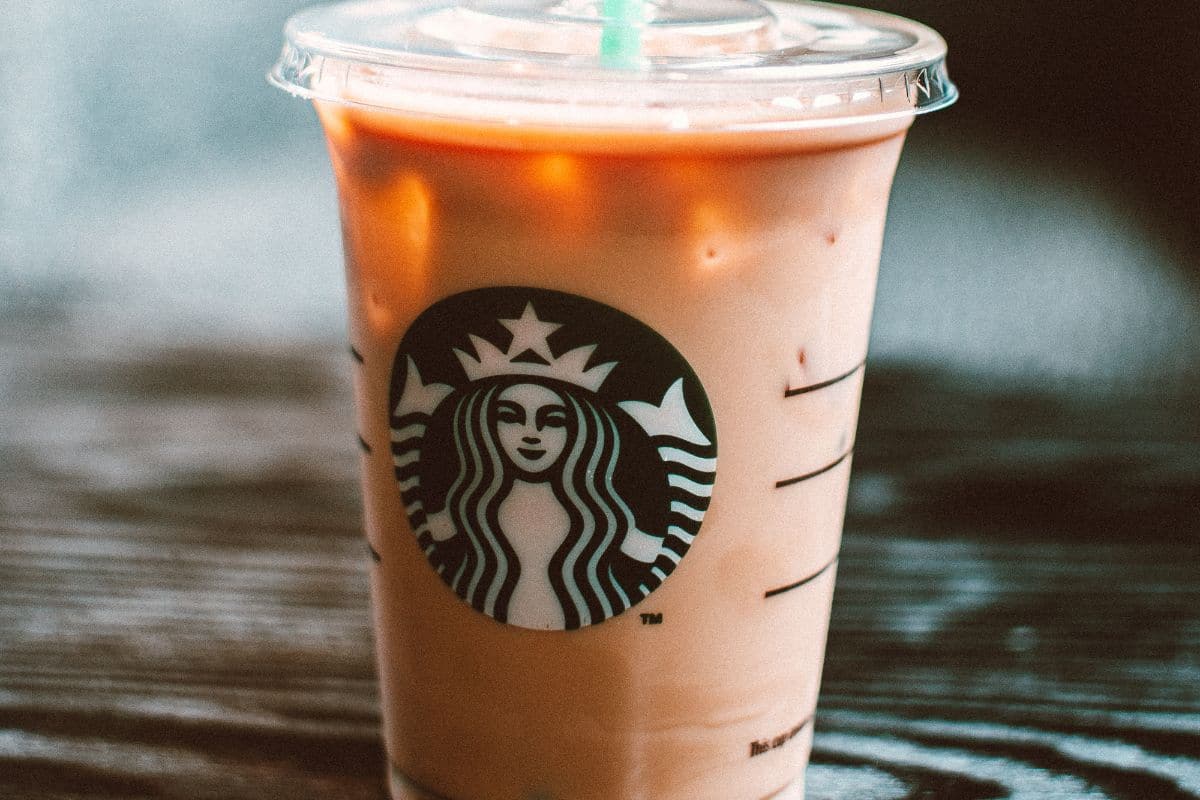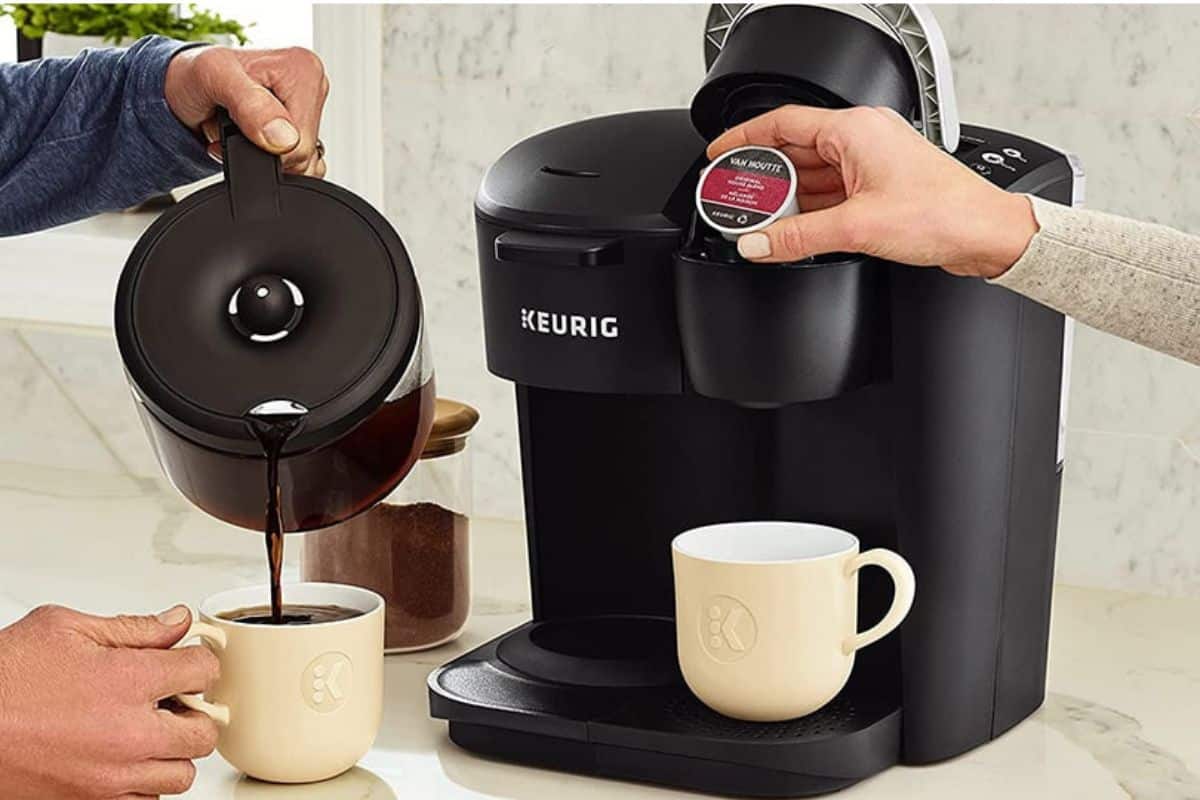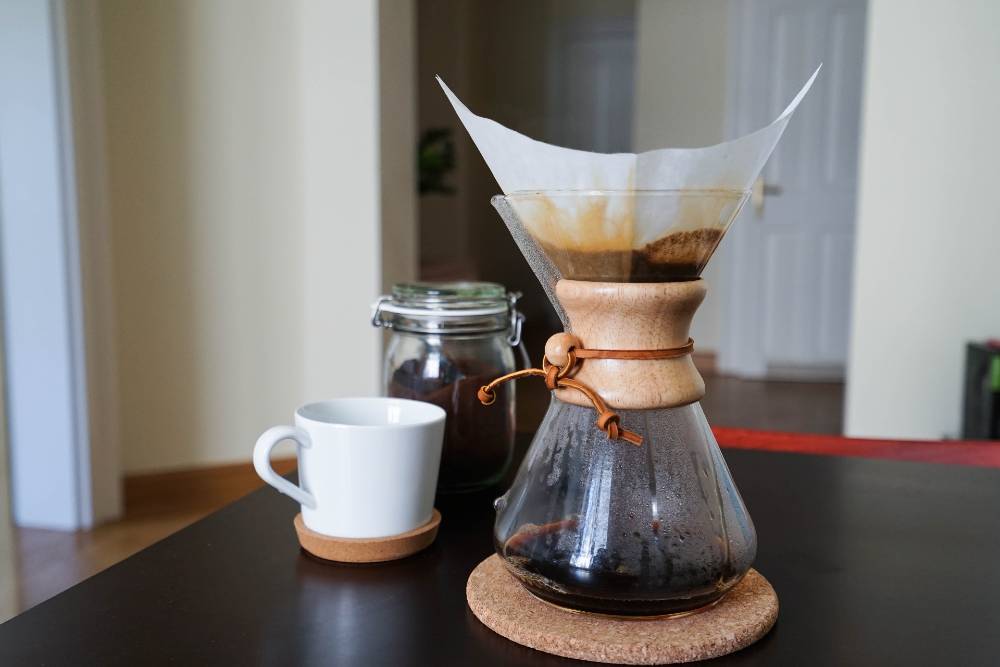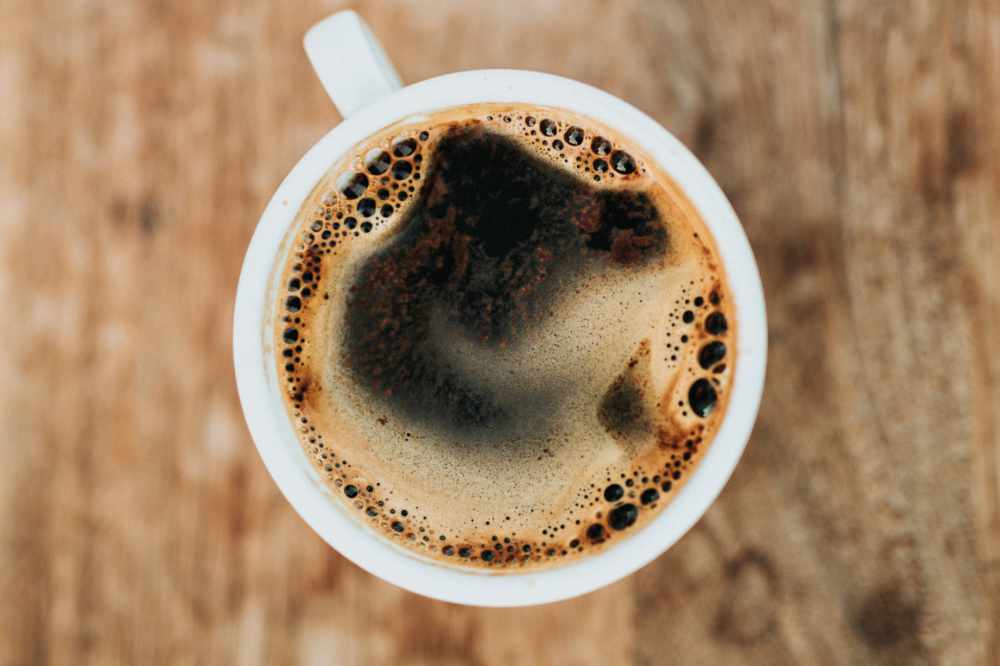Coffee and milk go together like a cool breeze on a hot summer’s day. Whether it’s dairy or non-dairy you prefer, there’s no reason to hold back the combination of milk and coffee and there’s a lot of potential for a wide variety of drinks.
Most of us are very familiar with adding milk to coffee after it’s brewed or steaming milk with an espresso machine. This tried and tested method tastes great so this leads me to wonder, can you brew coffee in milk?
As it happens, you can simply brew coffee in milk. The problems arise with the fats in milk preventing the full coffee flavor from diffusing. The best way to brew coffee in milk is by doing it either cold-brew style or using instant granules.
At high temperatures, milk burns and it can also ruin a coffee maker so you need to take care with how you combine these two ingredients to get it right.
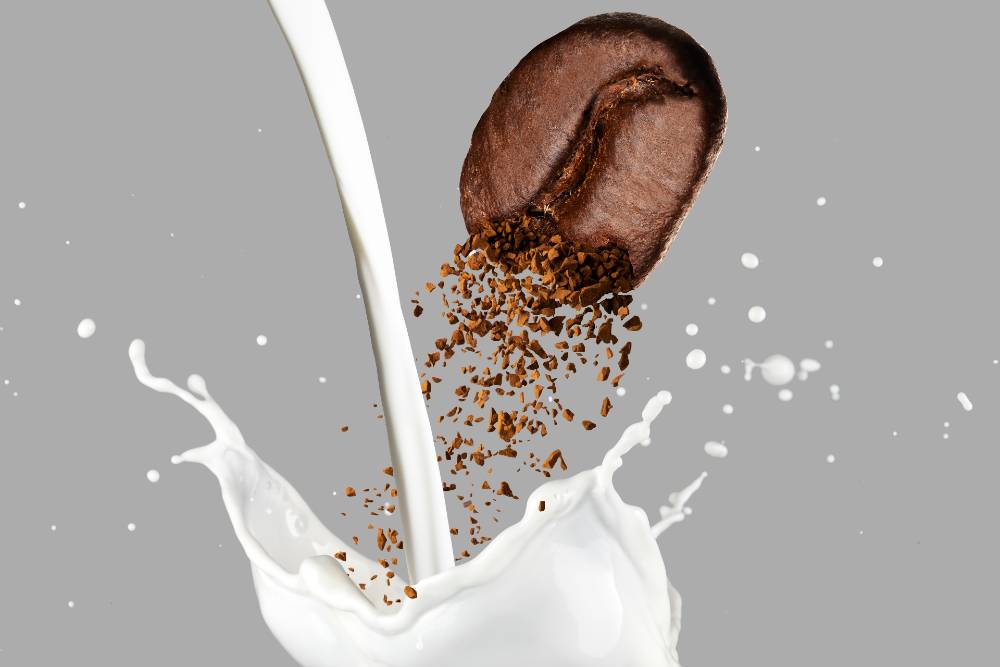
Why Does Milk and Coffee Go Together So Well?
Coffee is a very rich and intense drink with notes of bitterness and acidity. The thick fats and sugars in milk balance out these notes when added to coffee. This can make the drink smoother to taste as well as gentler on sensitive stomachs.
Ways To Enjoy Milk and Coffee
The typical way to enjoy milk with coffee is to add a splash to your cup after the coffee is brewed. This can vary from a small amount in black coffee to larger volumes being used for specialty coffees. The intense, dark espresso pairs well with steamed milk to give a latte, cappuccino, or macchiato.
Milk goes well with iced coffee to give a lovely refreshing cold drink or it can be blended into the coffee with ice and sweeteners to make a more decadent drink.
It’s not just dairy that produces this delicious coffee-milk partnership. Soy, oat, coconut, almond, and many more non-dairy kinds of milk can be used to transform any cup of coffee.
Can You Replace Water With Milk?
The next question when considering brewed coffee and milk is can you replace the water altogether and use just milk?
Hot Coffee
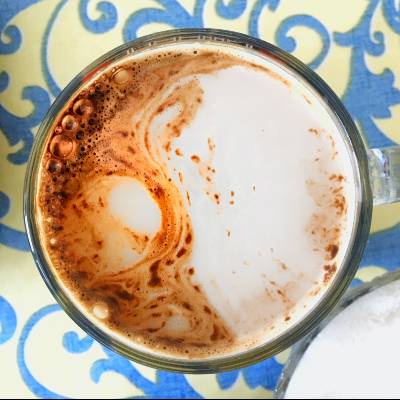
Replacing the hot water with milk in your coffee maker should be done with caution. Milk can burn easily if heated up too much and it can’t achieve the optimal brewing temperature of around 200F without sustaining some damage.
This being said, you can heat milk to around 150F so this can be used to brew coffee. Be careful with the brewing process you choose as milk can stick and leave a smelly residue behind that’s very difficult to clean.
Milky brewed coffee tastes like just that, coffee with milk. A good use for this type of brew is to add a little cocoa powder to make a mocha or any other flavors you like ie cinnamon, vanilla, or pumpkin spice to give a latte-type drink.
Cold Brew Coffee
Replacing the cold water used to make cold brew coffee with milk is another option if you’re keen to brew the coffee grounds in milk. The extraction process is a little slower due to the fats in the milk so it’s worth leaving the coffee to steep for longer than 8 hours. You may need to use slightly more coffee than you typically would when cold brewing. It’s also worth noting that the mixture must be left in the fridge to brew and not at room temperature.
Brew Methods – Yes or No?
Drip Machine
No. Don’t do it. Unless you hate your drip machine and want an excuse to buy a new one, adding whole milk to the water tank is a sure way to ruin your machine. The milk will burn and can end up coating the machine in a nasty, burnt milk layer.
Pour Over
A pour-over coffee maker depends on the setup. Paper filters can easily become clogged with the fats from the milk and can form a sludgy mess. Some pour-over set-ups come with a mesh reusable coffee filter that works better with thicker liquids like milk. You will need to up the amount of grounds you use as is typically the case with milk.
This brewing method is a potential option to switch out the water for milk but beware that the mesh filter can be a real pain to get clean afterward.
French Press
Yes, the french press is a great way to go about brewing coffee with milk. You’ll never end up with a strong coffee, no matter how many coffee beans you add but you can end up with a creamy coffee drink. As with the pour-over, the french press filter can get really nasty if not cleaned properly after this brew method.

Moka Pot
No, don’t do it. Please don’t add milk to a stovetop espresso maker. It’s a quick way to ruin the pot as well as the milk as it relies on boiling the liquid to brew the coffee. If you love using a Moka pot I’d recommend brewing regular coffee in it and top it up with steamed milk or creamer.
Percolator
Again, no. Don’t put milk in a percolator. This is another coffee brew method that heats the liquid to very high temperatures. If you really feel like your percolator coffee is lacking in calcium, please do yourself a favor and add the milk after the coffee is brewed!
Cold Brew
Yes, do it! Cold-brew is a good way to get experimental with the coffee milk brew combo. I’d recommend a medium roast to dark roast to ensure some coffee flavor makes it through the milky richness. Add coarsely ground coffee at a 1:4 ratio of coffee to milk. It’s best to use a mason jar as they’re easy to clean and the coffee can be added straight from the grinder or you can steep it in a milk bag or coffee bag if you prefer.
Give the brew 12-18 hours in the fridge to fully mature and then strain away the coffee with a cheesecloth or something similar.
Milky cold brew coffee can be enjoyed as is, served over ice, or even blended with vanilla ice-cream to give a thick, coffee milkshake.
Instant Coffee
Can you just add instant coffee to warm milk?
You’ll not find this on sale at any coffee shops but it does work to give a super simple, milky coffee. Simply warm your milk up to around 150F, stir in the powder, and enjoy!
Take-Home
A lot of coffee drinkers out there enjoy milk with their brew. It’s an easy way to balance bitter flavors and makes a rich, warming drink. If you love milky richness with your coffee then you can go ahead and brew the stuff straight into milk as long as you don’t burn it or ruin your coffee machine in the process.
It’s no barista skill to use milk instead of water but if that’s how you enjoy your coffee then don’t be ashamed of this. Sit back, relax, and enjoy that creamy java!


